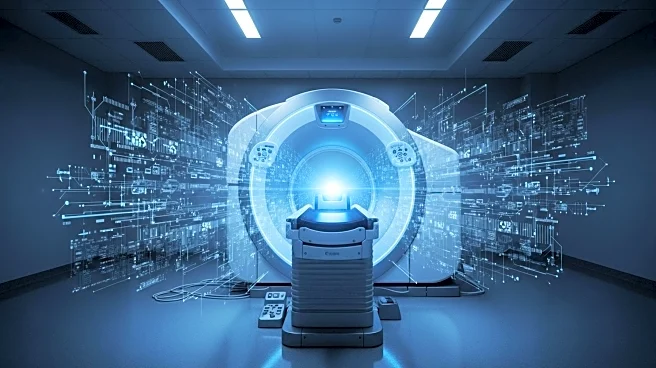What's Happening?
Artificial intelligence (AI) is increasingly being integrated into clinical decision-making processes, leveraging machine learning and natural language processing to support physicians in diagnostic, prognostic, and therapeutic decisions. These AI systems process complex datasets, including electronic health records, medical imaging, genomic information, and real-time patient data, to provide timely, data-driven insights. The advancements in AI have notably improved medical image analysis, with deep learning models surpassing human performance in detecting certain abnormalities. Predictive analytics is also advancing, with models forecasting patient deterioration, sepsis onset, and hospital readmission risks using structured and unstructured clinical data. Language models are being applied to extract information from clinical notes, support documentation, and enable conversational AI systems for patient interaction.
Why It's Important?
The integration of AI into clinical decision-making is significant as it aims to reduce diagnostic errors, personalize treatment plans, and improve patient outcomes. By providing data-driven insights, AI systems can enhance the accuracy and efficiency of healthcare delivery. This technological advancement is crucial for achieving regulatory approval and building trust among healthcare providers, as it addresses data-sharing limitations while safeguarding patient confidentiality. The development of interpretable and clinically validated AI systems is essential for widespread adoption in the healthcare industry, potentially transforming how medical professionals approach patient care.
What's Next?
Future developments in AI for clinical decision-making may focus on advancing multimodal learning frameworks that integrate diverse data sources into cohesive predictive tools. Research may continue to explore privacy-preserving AI technologies to address data-sharing limitations. As AI systems become more interpretable and clinically validated, they are likely to gain regulatory approval and wider acceptance among healthcare providers. This could lead to more personalized and efficient healthcare delivery, with AI playing a central role in patient interaction and clinical documentation.
Beyond the Headlines
The ethical implications of AI in healthcare include ensuring patient confidentiality and addressing potential biases in AI algorithms. Long-term shifts may involve redefining the roles of healthcare professionals as AI systems take on more diagnostic and prognostic tasks. The cultural acceptance of AI in healthcare will depend on its ability to demonstrate reliability and improve patient outcomes without compromising ethical standards.










